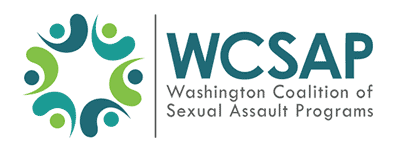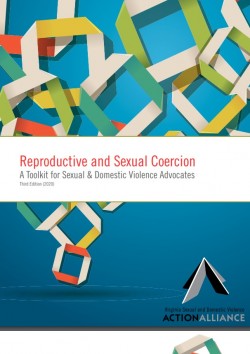Resources Library: Healthcare Professionals
Start a Search:
Pregnant and Parenting Survivors

The Washington Coalition of Sexual Assault Programs (WCSP) provides discipline specific information for advocates working with pregnant and parenting survivors. This resource from the WCSP not only provides practice guidelines and examples, but also specific facts related to reproductive and sexual coercion experienced by many survivors. Additionaly, the WCSP site provides information on the specific needs of survivors during pregnancy and post-delivery.
http://www.wcsap.org/pregnant-and-parenting-survivors
Principales hallazgos de estudio “La victimización mediante violencia sexual y sus asociaciones con la salud en una muestra comunitaria de mujeres hispanas”
Esta traducción resume los principales hallazgos del estudio “La victimización de Violencia Sexual y de las asociaciones de la salud en una muestra de la comunidad de las mujeres hispanas,” realizado por K. C. Basile, S.G. Smith, M.L. Walters, D.N. Fowler, K. Hawk y M.E. Hamburger. Los hallazgos del estudio se basan en nuestra comprensión de los efectos de la violencia sexual en mujeres latinas y pueden orientar nuestras estrategias tanto de prevención de la violencia sexual como de respuesta a ésta.
En Ingles: Sexual violence can result in many health, economic, and social struggles in the lives of survivors. This resource highlights findings from a 2015 study on sexual violence against Latina women. Findings can help strengthen our prevention and response strategies with Latin@ communities.
Protective Orders in Virginia - A Training
Virginia Sexual and Domestic Violence Action Alliance staff produced this power point presentation to train sexual and domestic violence advocates on the Virginia protective order process. This 31-slide presentation provides an overview of the different types of protective orders, describes how individuals can petition for them and how they work, and includes links to relevant VA Code sections.
Reproductive and Sexual Coercion: A Toolkit for Sexual & Domestic Violence Advocates

The Virginia Sexual and Domestic Violence Action Alliance seeks to build local sexual and domestic violence agencies’ capacity to identify reproductive and sexual coercion. This includes: implementing screening for reproductive and sexual coercion, implementing policies and procedures that address reproductive and sexual coercion, fostering partnerships with family planning and reproductive health providers, and doing the above-mentioned work through a reproductive justice framework or lens.
The goal of this toolkit is to help begin conversations and implement new or clarify existing policies within your agency: What is reproductive and sexual coercion? Why is a reproductive justice framework necessary? How can we best support survivors of sexual and intimate partner violence with a better understanding of reproductive and sexual coercion? What are sample policies and procedures my agency can utilize? Who in my community can I collaborate with on this work? We hope this resource provides some answers to these questions while also guiding and supporting further learning on these topics to best support the specific needs of your community.
Resources Addressing the Unique Needs of Black and Latin@ LGBQ/T Survivors of Partner Abuse

TOD@S (Transforming Ourselves through Dialogue, Organizing, and Services) is an interagency collaboration between The Hispanic Black Gay Coalition, The Violence Recovery Program at Fenway Health, The Network / La Red, and Renewal House (a program of the Unitarian Universalist Urban Ministry) in Boston, Massachusetts. Their mission is to improve and increase access to intervention and prevention services for Black and Latin@ lesbian, gay, bisexual, transgender, and queer (LGBTQ) people affected by partner abuse.
They have created a Community Needs Assessment and Action Plan as well as a training for community service providers.

